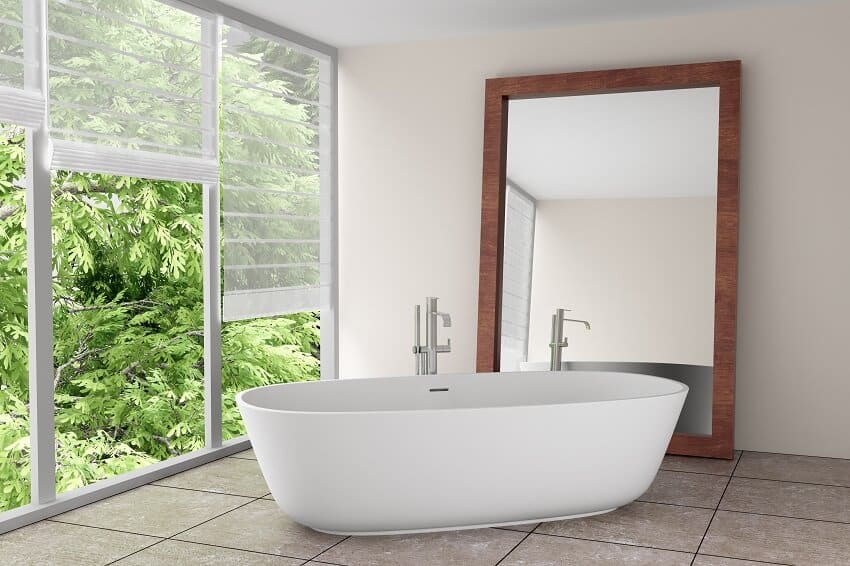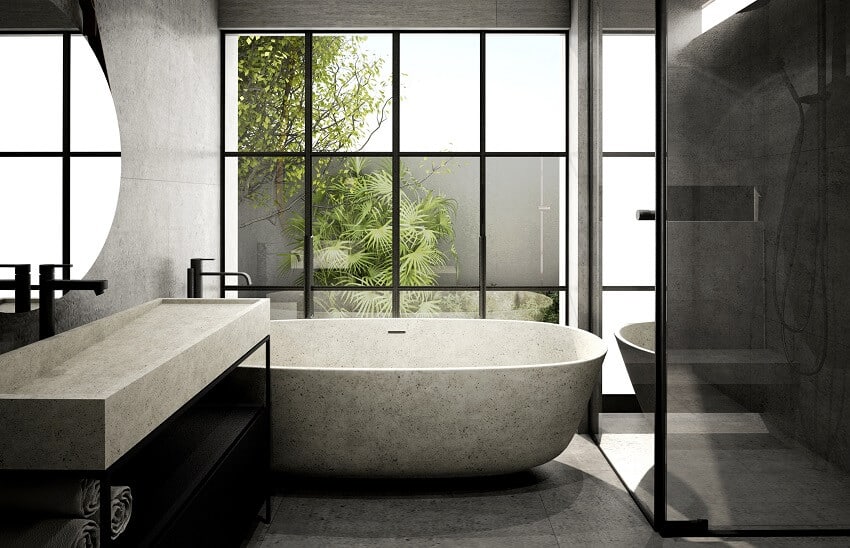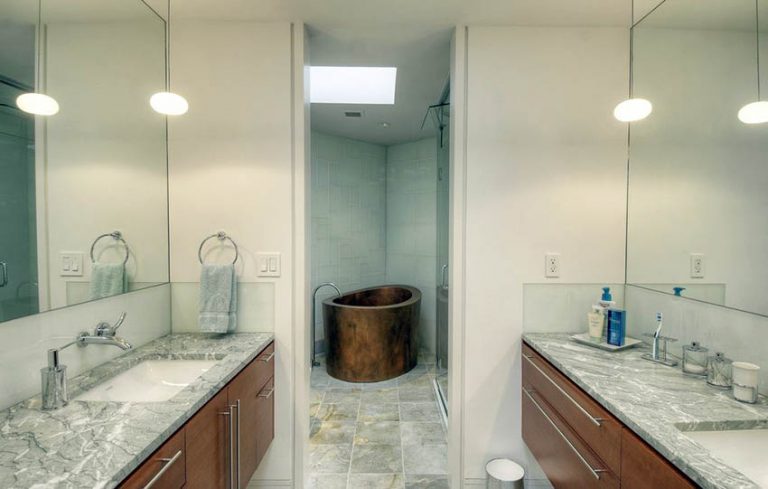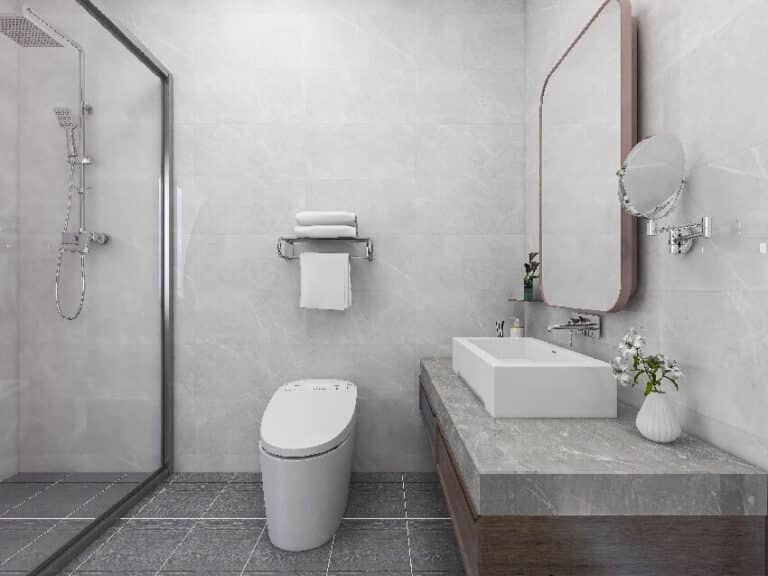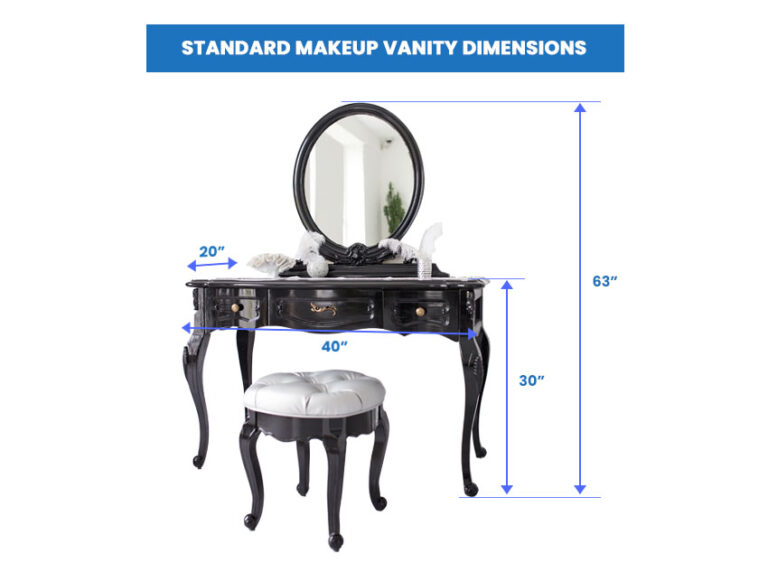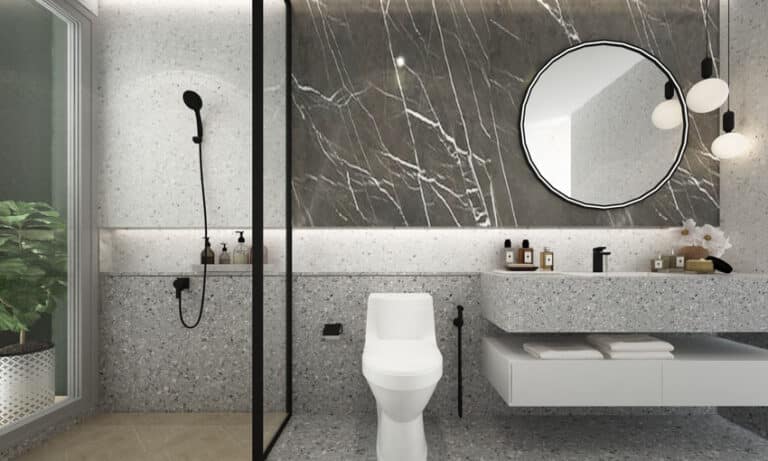Stone Resin Bathtub (Pros and Cons)
When you want to change up your bathroom fundamentally, a renovation on your bathtub might just do the trick! However, the decision isn’t always so simple. After all, you have a lot of options out there for bathtub styles and materials and it can be hard to learn everything.
Here, we’ll break things down by focusing on one popular bathtub choice: a stone resin bathtub. From what they are to how long they last, keep reading to learn everything you need to know about stone resin bathtubs!
What Is A Resin Tub?
When it comes to bathtubs, you have many options for the type you want, including the material it’s made of. The option that we’re focusing on here is stone resin.
First and foremost, it’s important to clarify that, despite its name, stone resin isn’t a type of natural stone. However, that isn’t to say that stone isn’t present in manufacturing stone resin bathtubs. The material is created by taking real stones, crushing them, and then setting them with a mix of natural minerals and, of course, polymer resin.
One great benefit to this compared to real stone is that you often save a bit on both the cost of the project and the weight of the tub itself. The weight can be particularly concerning if you’re adding a bathtub to an upstairs bathroom where you’re more worried about the floor successfully holding the weight of a bathtub full of water.
Stone Resin Tub Pros And Cons
There’s a lot to learn about stone resin bathtubs, but it can be helpful to break that down into a simple list of pros and cons to consider.
Pros of Stone Resin Bathtubs:
First, let’s get started by going through the benefits of a stone resin bathtub.
Durability – For one, you’re going to get a lot of durability out of a stone resin bathtub. For one, stone resin is non-porous, which is an important measure for something like a bathtub that has a purpose to hold water.
Retains Heat – A stone resin tub will help keep the heat in the tub longer than a less insulated material, letting you enjoy that hot bath a little bit longer.
Won’t Fade Like Other Bathtub Materials – As time goes on, you also won’t run into the color of your bathtub fading, either.
Easy to Clean – If you run into any messes that could mar that appearance, cleaning won’t break your back. All you have to do is use warm water and if things get particularly tough, you can turn to a lightly abrasive chemical.
Looks Amazing – With its smooth, stylish, good looks, a resin tub makes an excellent impression and is sure to enhance the design and ambiance of your bathroom space.
Variety of Styles and Shapes Available – Due to the way it’s manufactured in prefabricated molds there are a variety of designs, shapes, and sizes to choose from. This allows for plenty of versatility when searching for a product to fit your specific room layout and match your decor and accessories.
Cons of Stone Resin Bathtubs:
On the other hand, it’s worth looking at the cons of stone resin as well.
It’s Expensive – Primarily, the biggest drawback to stone resin is that it is a more costly option when it comes to bathtub materials.
Yet, that additional cost does offer a bathtub that you won’t find yourself replacing anytime soon, and that offers high quality throughout its lifespan.
Heavy – Stone resin is a heavy material that can make installation challenging. The material is heavier than many other tub products like fiberglass or acrylic.
Hard to Repair – In the unfortunate chance that your tub gets damaged it’s harder to repair than other types. The surface itself is prone to scratches and abrasions if you’re not careful, making it a little stress inducing to ensure that nothing happens to it.
Resin Bathtub Cost
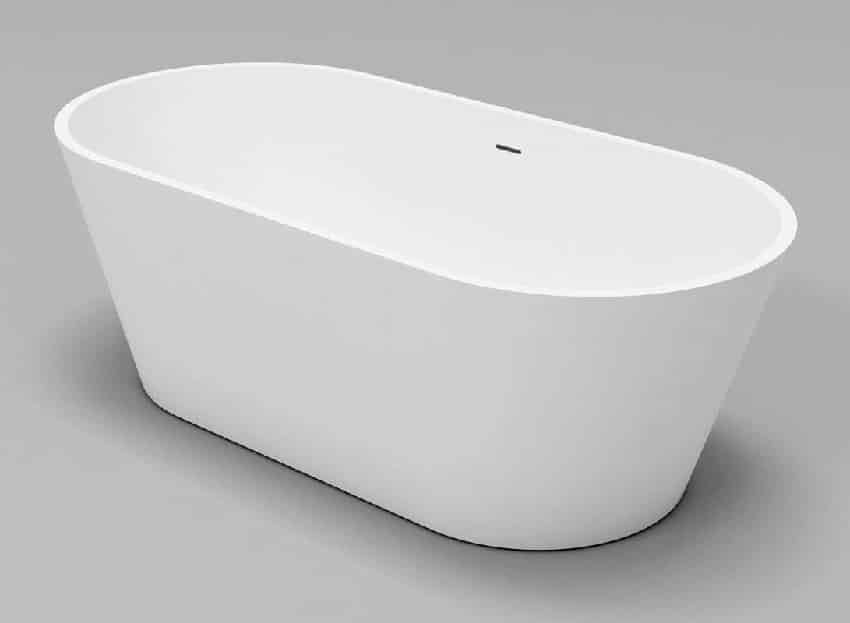
When it comes to any renovation, you’re probably working on a budget of some sort. Because of that, a big deciding factor in any project can be the cost.
To help make this decision a little easier, let’s break down the average cost of a stone resin bathtub. Of course, we should preface this concept by noting that these are average costs, so the exact cost to cover a project can vary a bit.
For most people, though, you can expect to spend between $1,200 and $3,000 on a new stone resin bathtub depending on factors. These factors include the specific model you choose and the cost of installation.
This is a fairly high cost compared to options like acrylic and fiberglass but it comes with a quality and durability that will last you years to come.
Durability is a particularly important feature to consider alongside the price. While the stone resin is costly, it offers a lot of ongoing value for that cost.
How Long Do Resin Style Tubs Last?
We mentioned that one of the biggest benefits of a stone resin tub is that they’re so durable. This is great because it helps you get the most out of your money, not have to commit to redoing the renovation in the near future, and simply lets you enjoy the new bathtub you chose for longer.
So, let’s take a moment to look at this durability in more specific terms. How long will a resin tub last before you have to consider another replacement?
All in all, you can pretty much expect a stone resin bathtub to last a lifetime. Barring anything drastic happening, a well-taken-care-of stone resin bathtub will last as long as 70 years before it starts to show signs of serious wear.
Durability This long helps to offset the initial cost of a stone resin tub by negating the need for the number of replacements necessary with a material with shorter longevity.
How Heavy Is A Bathtub Made of Resin?
Bathtub weight is an important factor when you’re considering if your floors are strong enough to handle them. Remember, you have to consider that a bathtub includes accounting for the fact that when the tub is in use, the floor has to support the weight of the tub full of water.
Some floors have a hard time handling or outright can’t hold a heavy tub. So, it’s good news that resin bathtubs are often more lightweight than a choice like genuine stone or a more traditional option like cast iron although they are heavier than an option like fiberglass or an acrylic tub.
On average, you can expect a range of weights often hovering around 300 to 450 pounds. Again, this can vary depending on factors like tub size, so make sure to check the weight on the specific model you’re considering for a more exact answer.
Bathtub Manufacturers
Even within the category of stone resin bathtubs, there are a lot of choices when it comes to the specific tub you choose. A big part of this is knowing what manufacturers to turn to when you’re in the market for a stone resin bathtub. The good news is that you have quite a few options when it comes to where to look for a stone resin bathtub.
For one, you can turn to a company like Blue Bath, which focuses on fixtures for your bathrooms and kitchen. Badeloft is another company that offers a variety of options made from stone resin.
A few other brands to consider include Kinwell, Streamline, Anzzi, and Vanity Art. For a brand that’s often turned to for home items, Kohler is a great choice as well.
By checking out what a variety of manufacturers have to offer, you can not only more easily find an option within your budget but with all the design features that you might hope for.
Resin Vs. Acrylic Tubs
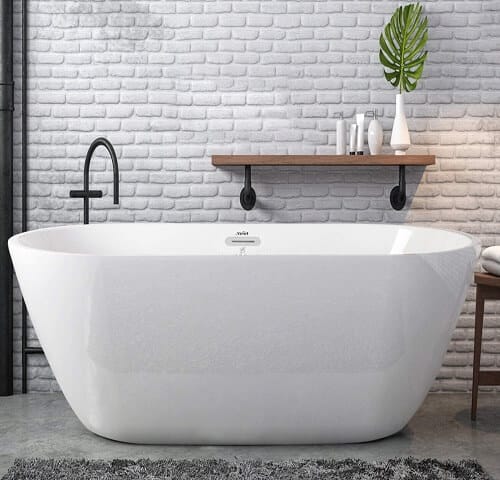
Acrylic bathtubs are another popular material for bathtubs. They’re made with acrylic sheets that are vacuum-formed into the shape of the tub and they’re often reinforced with fiberglass. So, how does this popular choice measure up to stone resin bathtubs?
First, there are a few similarities between these materials. They’re both non-porous, protecting them from water damage, and they’re both easy to clean and repair if you need to.
Acrylic tubs have a few advantages over solid surface stone resin. For instance, they often come at a cheaper cost, and they’re an option that’s easy to install. That being said, there are quite a few disadvantages to choosing acrylic over stone resin.
Namely, the durability of acrylic bathtubs just doesn’t measure up to what stone resin has to offer. As we mentioned, you can repair both, but acrylic is going to incur damage much easier than stone resin.
Plus, as time goes on, you’ll start to notice more wear and fading on an acrylic tub than on a stone resin counterpart. In the long term, stone resin tubs will offer more value over time.
You may read more about our guide on how to choose a bathtub to help you decide on choosing one. There is also a comparison of acrylic vs fiberglass tubs here.
How Can You Tell A Tub Made Of Resin From Stone?
There are a few different ways that you can tell what material your bathtub is made out of. So, what are some of the differences between resin and stone tubs?
For one, if you know the weight of your bathtub that can help! After all, natural stone will weigh more than a similarly sized tub made of stone resin.
Furthermore, all types of stone aren’t necessarily non-porous. On the contrary, resin is always non-porous, and thus, stone resin bathtubs get their beneficial nature in this regard.
Finally, it’s worth revisiting what we briefly touched on earlier, that stone resin can often be recycled for use later. Stone, on its own, isn’t as easy to break down and reuse, meaning that it misses out on this more environmentally friendly potential when your bathtub reaches the end of its natural lifespan, giving it an edge over natural stone.
Stone resin bathtubs have a lot to offer! While they come at a high initial cost, they more than makeup for it in the sheer number of aesthetic options that you have and the incredible longevity that they offer.
Have you tried a stone resin tub bathing experience? Share your opinions or questions using this style of tub in the comments. Read more about other kinds of bathtubs like alcove tubs and copper tubs, to explore more options before choosing one.



